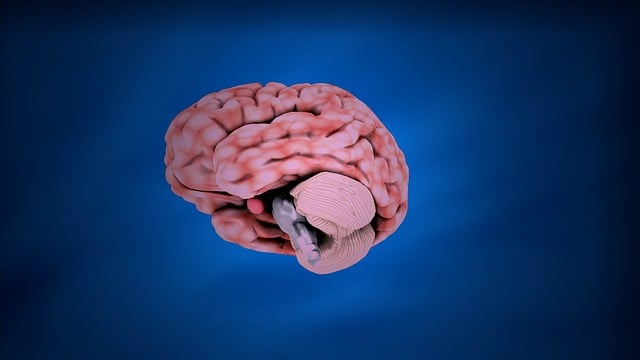Depression, characterized by persistent low mood, loss of interest, and various physical symptoms, is influenced by genetic factors, brain chemistry, and traumatic experiences. Arvada Trauma Therapy professionals emphasize that unresolved trauma can lead to prolonged stress responses affecting mood regulation. Their mental wellness coaching programs combine development and mood management techniques to identify and mitigate triggers, fostering resilience. Adopting healthier lifestyle habits like regular exercise, quality sleep, and a nutritious diet is crucial for prevention and management. Therapy, particularly specialized services at Arvada Trauma Therapy, equips individuals with coping mechanisms and emotional resilience. Support groups and activities boosting self-esteem contribute significantly to mental well-being and depression prevention. Arvada Trauma Therapy focuses on building resilience, stress management, and Mental Illness Stigma Reduction for comprehensive mental health care.
Depression is a prevalent condition affecting millions, but with proactive strategies, prevention is achievable. This article explores comprehensive approaches to safeguard your mental health, including understanding depression’s triggers and implementing lifestyle changes. Discover the power of therapy and support groups in managing symptoms and learn building resilience techniques for long-term well-being. For tailored guidance, consider Arvada Trauma Therapy, where professionals offer specialized care.
- Understanding Depression and Its Triggers
- Lifestyle Changes for Better Mental Health
- The Role of Therapy and Support Groups
- Building Resilience: Coping Strategies for Prevention
Understanding Depression and Its Triggers

Depression is a complex mental health disorder that significantly impacts an individual’s daily life and overall well-being. It’s more than just feeling sad or blue; it’s a persistent state of low mood characterized by loss of interest in activities once enjoyed, changes in appetite and sleep patterns, fatigue, difficulty concentrating, and feelings of worthlessness. Understanding the triggers behind depression is crucial for prevention and effective management.
Many factors can contribute to the onset of depression, including genetic predisposition, brain chemistry imbalances, hormonal changes, stressful life events, chronic illnesses, and substance abuse. In some cases, traumatic experiences play a significant role, as Arvada Trauma Therapy professionals often emphasize. Unaddressed trauma can lead to prolonged stress responses, affecting mood regulation and contributing to anxiety relief challenges. Mental wellness coaching programs designed for development and mood management techniques are valuable tools in identifying and mitigating these triggers, fostering resilience, and promoting overall mental wellness.
Lifestyle Changes for Better Mental Health

Adopting healthier lifestyle habits is a powerful tool in the prevention and management of depression. Regular physical activity, for instance, releases endorphins that can boost your mood and reduce symptoms of anxiety and depression. Aiming for at least 30 minutes of moderate exercise most days of the week can make a significant difference. Additionally, prioritizing quality sleep is essential; adult individuals should strive for 7-9 hours each night to support emotional healing processes.
Nutrition plays another vital role in mental health. Incorporating foods rich in omega-3 fatty acids, vitamin D, and B vitamins can help regulate mood and reduce inflammation. Avoiding excessive sugar and processed foods is also beneficial. Furthermore, incorporating stress reduction methods like mindfulness meditation or yoga can provide effective tools for managing symptoms of depression. Consider joining a Stress Management Workshop Organization in Arvada Trauma Therapy to explore these practices further.
The Role of Therapy and Support Groups

Therapy plays a pivotal role in depression prevention by providing individuals with essential tools to manage their mental health effectively. Arvada Trauma Therapy, for instance, offers specialized services tailored to address trauma-related issues that often contribute to depressive disorders. Through therapy, individuals can explore and process difficult emotions, develop coping strategies, and gain insights into their thought patterns—all of which are crucial in preventing relapse and fostering emotional resilience.
Support groups complement therapeutic interventions by offering a safe and non-judgmental space for sharing experiences and learning from peers. These groups facilitate social connection, reduce feelings of isolation, and promote self-care practices. Moreover, they encourage members to implement risk management planning for mental health professionals, emphasizing the importance of proactive measures in maintaining mental well-being. Additionally, engaging in activities that boost self-esteem, such as setting achievable goals or practicing mindfulness, can significantly contribute to overall mental resilience and help prevent depression.
Building Resilience: Coping Strategies for Prevention

Building resilience is a powerful tool in the prevention of depression and Arvada Trauma Therapy recognizes this as a key aspect of their approach to mental health care. By teaching individuals effective coping strategies, they empower them to navigate life’s challenges with greater ease. These strategies often involve cultivating emotional awareness and understanding, helping people recognize early warning signs of distress.
Mental Health Education Programs Design that focus on building resilience can equip folks with the skills to manage stress, regulate emotions, and foster positive self-talk. This proactive approach not only prevents depression but also strengthens overall mental well-being. Additionally, addressing the Mental Illness Stigma Reduction Efforts is an integral part of promoting a supportive environment where individuals feel comfortable seeking help without fear of judgment, allowing for earlier intervention and better outcomes.
In addressing depression prevention strategies, it’s clear that a multifaceted approach is essential. By understanding the triggers and implementing lifestyle changes that promote mental well-being, individuals can significantly enhance their resilience. Seeking professional support through therapy or support groups offers valuable coping mechanisms and guidance. For those in Arvada seeking trauma therapy, specialized services are available to provide tailored assistance. Ultimately, building resilience through proactive measures is key to preventing depressive episodes and fostering a healthier, more balanced life.














